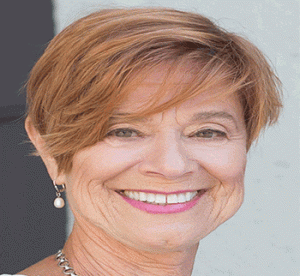The Toronto affiliate of the National Council of Jewish Women of Canada (NCJWC) is selling its landmark building, in a bid to increase its long-term prospects.
“The building is getting older and we’ve been having problems renting it because we couldn’t afford to upgrade the space,” said Ena Cord, immediate past president of NCJWC Toronto.
“Our membership is diminishing and the existing membership didn’t want to fund repairs to the building. So we decided it was time to sell, that the building didn’t necessarily have to define us and we could find a vital future in a new location.”
The sale, which closed Aug. 31, netted $6.5 million for NCJWC Toronto, which has occupied the two-story space at 4700 Bathurst St. since 1964.
Now the group’s leadership has 18 months to relocate. They would like to remain close to the current building, which now also houses NCJWC’s national office.
“We certainly are not looking for the same size, because if we have a large event, we will rent and that will be more cost effective for us,” said Cord.
NCJWC Toronto’s leadership first began to explore a sale about four years ago. NCJWC had lost two tenants and its income stream in a short time span. The group’s board approved the sale last winter and soon hired Collier’s International to find a buyer.
Frontdoor Developments beat out six other offers to acquire the property. It is expected to build a “residential structure of low to medium density.”
“It’s a huge amount of money,” said Cord, who stepped down as the local head in June, “but at the same time, with interest rates low and the cost of relocation and rent being high, we need to consider using that money wisely. In terms of our longevity, we need to be cautious about how we spend it.”
Topping the group’s shopping list is an executive director, which it hasn’t had since 2011. With two permanent staff on its books, NCJWC depends on its volunteers, but the group’s leaders hope a professional head can help rejuvenate the organization.
‘Today women work, so they don’t have the time to put into these kinds of commitments’
“We need someone to help with grants,” said Cord. “So we don’t have to keep going back to our members for money. And looking at our programs and maybe taking us in directions we haven’t thought about.”
At its peak, the National Council of Jewish Women boasted affiliates, or “sections,” in cities from Victoria to Halifax. A total of 12 sections went defunct over the years, leaving Vancouver, Edmonton, Winnipeg and Toronto as the sole survivors.

Toronto, the largest section, has also seen its membership drop – from 1,000-plus in its heyday, to a current tally of just over 600. The membership is aging, said Cord: the over-80 cohort is less engaged than it once was and the group’s youngest members are in their mid-40s.
NCJWC, which will celebrate its 120th anniversary on Oct. 22, may be suffering from sociological changes beyond its control.
“Women weren’t in the workforce,” said Cord, “so here was an opportunity for women to use their skills, to connect with other women, whether for social or educational purposes, to provide services for the community. Today women work, so they don’t have the time to put into these kinds of commitments.”
READ: UJA AIMS TO RAISE $57.4 MILLION IN 2017
Also, she said, synagogues are now providing programs, like a lunch and learn for seniors, that the group has run in the past.
“My hope,” said current president Eva Karpati, “is that we continue to be progressive and relevant and a voice in the community that speaks to the rights of women and children and those less advantaged, and continue to make a positive impact on the community in new ways.”
“It was a very emotional process, because we had history, and so many amazing things that happened in that building,” said Cord of the sale. “However, facing the challenges, it was almost a relief to be able to say we don’t have to look after this albatross anymore.







